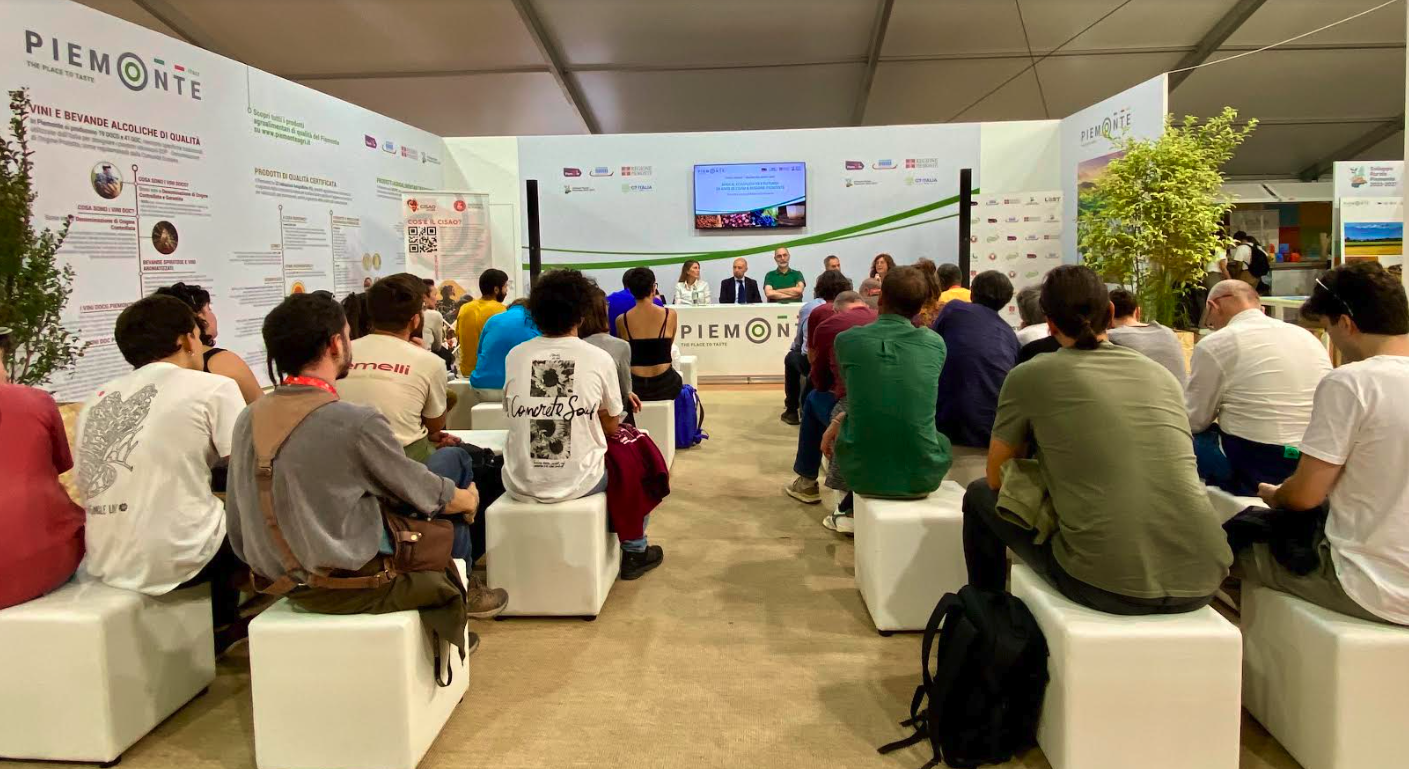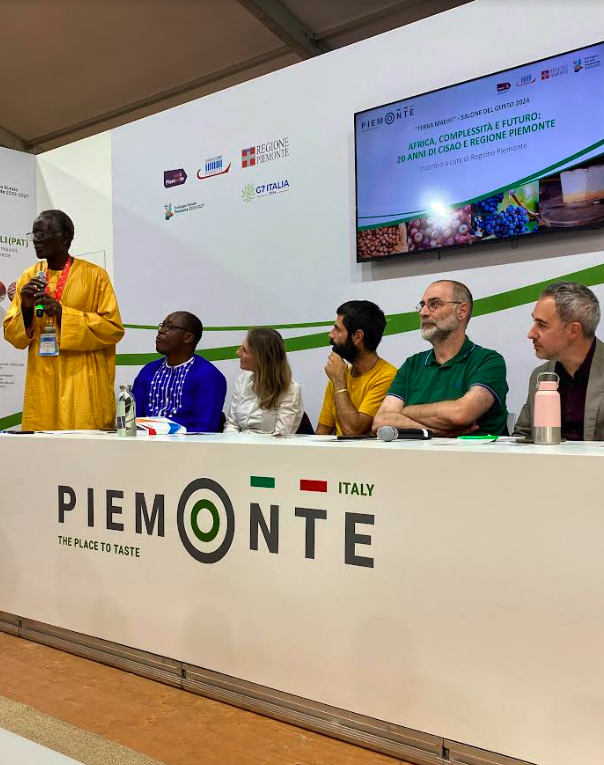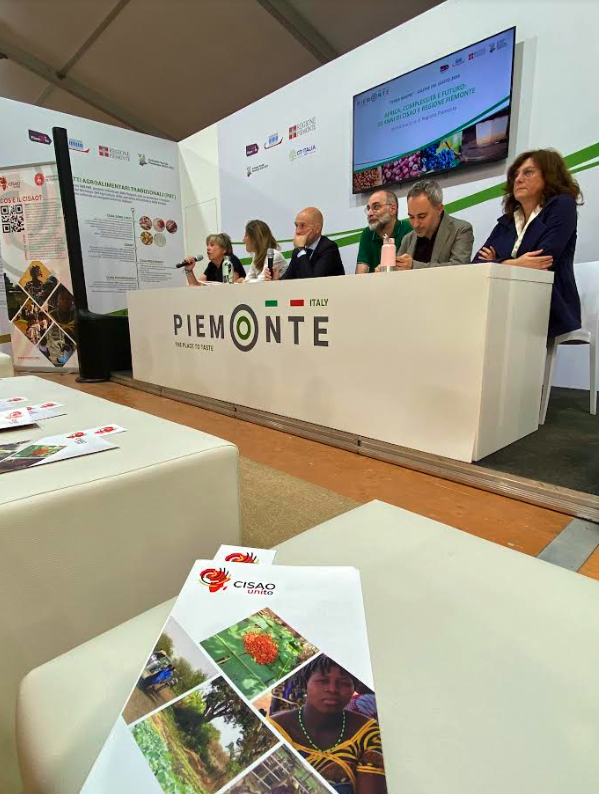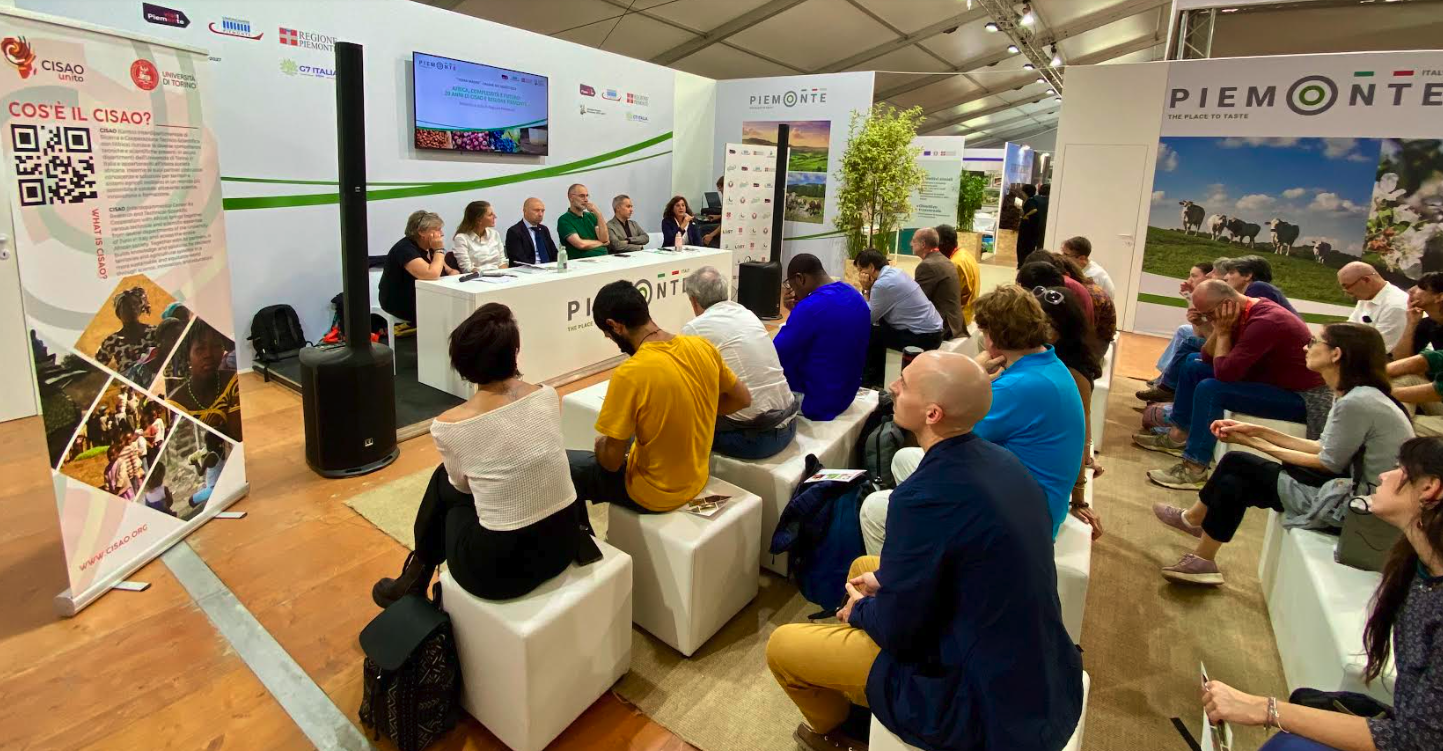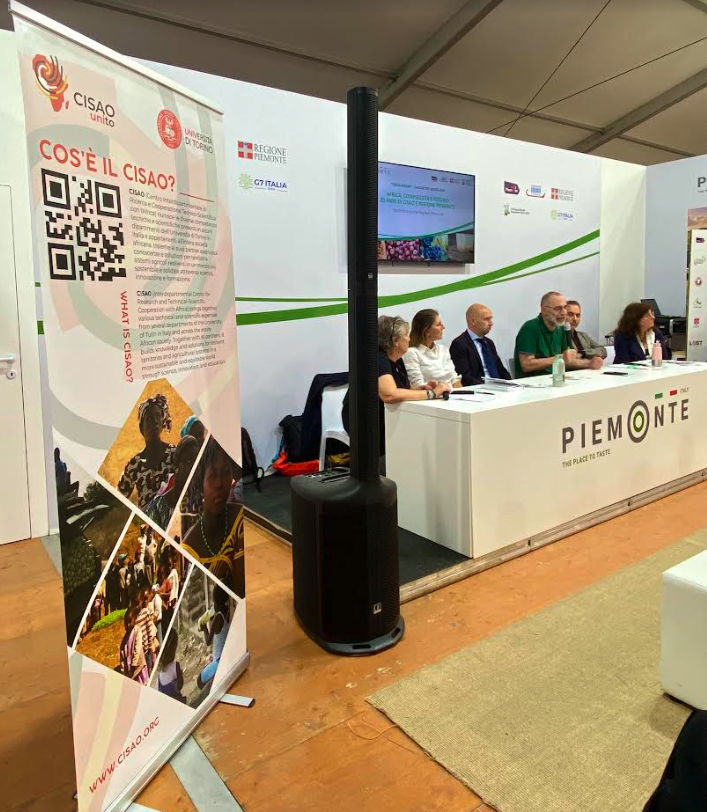The CISAO celebrates 20 years
and reflects with the Piedmont Region on changes in cooperation
The CISAO celebrates 20 years and reflects with the Piedmont Region on changes in cooperation
How has cooperation changed since 2004, the year CISAO was founded, to today? What are the new approaches and challenges that cooperation and CISAO will face in the coming years? These were the two main topics discussed during the meeting organized with the Piedmont Region on the occasion of “Terra Madre” in Turin, attended by external experts, AICS officials, and young Italians and foreigners involved in cooperation projects with Africa. In its 20 years of activity, CISAO has profoundly changed its approach to cooperation, following the evolution and rapid changes that have characterized the African continent in recent years. It was with this introduction that Cristiana Peano, President of CISAO, moderated the guest interventions and questions from the audience.
Enrico Casale, Africanist and collaborator with numerous newspapers, recalled how Africa is experiencing rapid technological and economic growth, which has social and economic consequences that are sometimes difficult to control. However, it is a growth path that African countries have consciously taken on and are now assuming responsibility for. The result is that, in many cases, geopolitical positions are becoming increasingly autonomous, with new and unprecedented alliances different from those tied to old colonial logics. Whether they succeed in freeing themselves from centuries of (forced) subordination to the international economic and political system will depend largely on the abilities of a young, educated, and dynamic population.
In this constantly and rapidly changing scenario, cooperation must keep up and evolve; today, a multidisciplinary approach is needed that takes into account the complex interactions between social, environmental, and cultural contexts. It is no longer conceivable to imagine a project for environmental sustainability or reducing food vulnerability (and examples could multiply) with a monodisciplinary approach, which has often characterized past cooperation activities. This was reiterated by Rodrigue Takumbo, an agronomy graduate who completed his thesis in his home country, Cameroon, involving professors from different disciplines in a project to recover and market livestock products in local markets. Similarly, Fabrizio Cannizzaro, a recent graduate of the agriculture cooperation curriculum, is now managing projects that involve actors from different backgrounds and disciplines.
Alessandro Gusman of CISAO emphasized that multidisciplinarity is certainly a difficult option due to the diversity of languages, dialogue skills, disciplines involved, and worldviews. However, it is a mandatory and necessary challenge for those working in cooperation, but one that can enrich all parties involved. CISAO has embraced this evolution, born 20 years ago from an initial collaboration with the Piedmont Region, which at that time was engaged in projects to combat hunger in Sahel countries during a period of great activity and vitality in international cooperation, which has since strengthened and consolidated.
Davide Gandolfi and Angelica Domestico of the Piedmont Region recalled that today there are many forms of collaboration, ranging from joint participation in international cooperation projects funded by national, European, and international tenders to activities and events focused on training and education, particularly for young people. The decentralized cooperation system in Piedmont is also very dynamic and active; entities like CISAO can play an important role in supporting project initiatives and providing effective, innovative, and multidisciplinary solutions.
Investing in universities in Italy and in countries where cooperation projects are active, as emphasized by Valentina Callari of AICS (Italian Agency for International Cooperation), is a fundamental step to strengthen dialogue and the exchange of ideas and information and to ensure that they become key actors in development. This is essential for training the future leadership, which, as mentioned earlier, will need to be equipped with the right skills and sensitivity to face the challenges of a new, conscious, and sustainable growth model.
